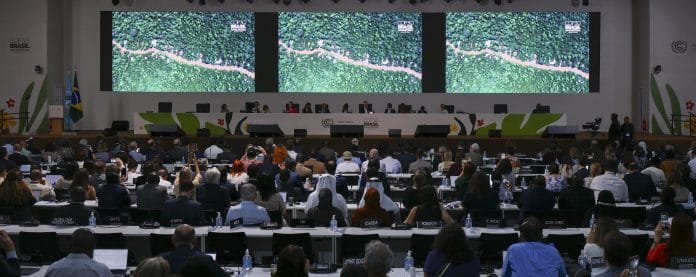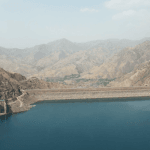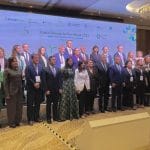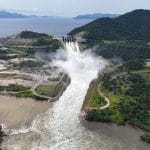After two weeks of intense negotiations in a new geopolitical reality, COP30 concluded in the Amazon city of Belém, Brazil, where countries agreed on a package to scale up climate finance and accelerate implementation of the Paris Agreement but without a new commitment to phase out fossil fuels.
One of COP29’s (2024) main achievements was the Baku Finance Goal (BFG), a new commitment to channel $1.3 trillion of climate finance to the developing world each year by 2035 and requiring developed nations to provide at least $300 billion annually. However, at COP30 reportedly there was lack of progress in implementing the annual climate finance target of at least $300 billion set during the COP29 in Baku with many countries failing to submit updated national climate commitments.
Moreover, there were other politically-charged and difficult-to-negotiate issues within the climate talks and U.S. President Donald Trump, who pulled the country out of the Paris Agreement, did not even care to dispatch a delegation to the summit.
“We knew this COP would take place in stormy political waters. Denial, division and geopolitics has dealt international cooperation some heavy blows this year,” United Nations Climate Change Executive Secretary Simon Stiell said in his closing speech after exhaustive talks on Friday, November 22 that carried into the early hours of Saturday at the first COP held in the Amazon.
“But friends. COP30 showed that climate cooperation is alive and kicking, keeping humanity in the fight for a livable planet, with a firm resolve to keep 1.5C within reach,” he said. “I’m not saying we’re winning the climate fight. But we are undeniably still in it, and we are fighting back. Here in Belem, nations chose solidarity, science, and economic common sense,” Stiell added.
“As we leave Belém, this moment must not be remembered as the end of a conference, but as the beginning of a decade of turning the game”, COP30 President André Corrêa do Lago (Brazil) said. “The spirit we built here does not end with the gavel; it continues in every government meeting, every boardroom and trade union, every classroom, laboratory, forest community, large city, and coastal town,” he added.
One hundred and ninety-five Parties adopted the Belém Package. According to the UN, the adopted text calls for mobilizing at least $1.3 trillion per year by 2035 for climate action, emphasizing the need for developed countries to significantly boost climate finance for developing nations as well as and operationalizing and replenishing the Loss and Damage Fund agreed at COP28.
It also launches two initiatives – the Global Implementation Accelerator and Belém Mission to 1.5°C to drive ambition and implementation.
In order to tackle disinformation, countries agreed to commit to promote information integrity and counter false narratives.
At a time of great geopolitical challenges, even though a climate deal was reached in Belém, host Brazil and more than 80 countries including the UK and European Union lost a battle to hydrocarbon-producing nations led by Saudi Arabia advance commitments made two years ago to move away from fossil fuels.
A former environment minister of Morocco, Hakima Elhaité, Board member, United Nations Zero waste initiative; president, Africa Pact, VP Paris agreement, member, Nizami Ganjavi International Center, said the results of the negotiations in Belém “are just disappointing!”
“Belém delivered another COP package of future ambition, most notably by pushing the goal of tripling adaptation finance out to 2035 and failing to chart a clear course away from fossil fuels,” she told NE Global on November 23. “For the developing world, this is another promise that kicks the can down the road. Climate action is not a future-tense problem; the bill for this inaction is being paid right now, today, by the most vulnerable,” Elhaité added.
Adaptation boost
According to the COP30 Presidency, the approved decisions in the Belém Package include a commitment to triple adaptation finance by 2035, emphasizing the need for developed countries to significantly boost climate finance for developing nations. Parties concluded the Baku Adaptation Roadmap, which approves and establishes the work for 2026-2028, until the next Global Stocktake of the Paris Agreement.
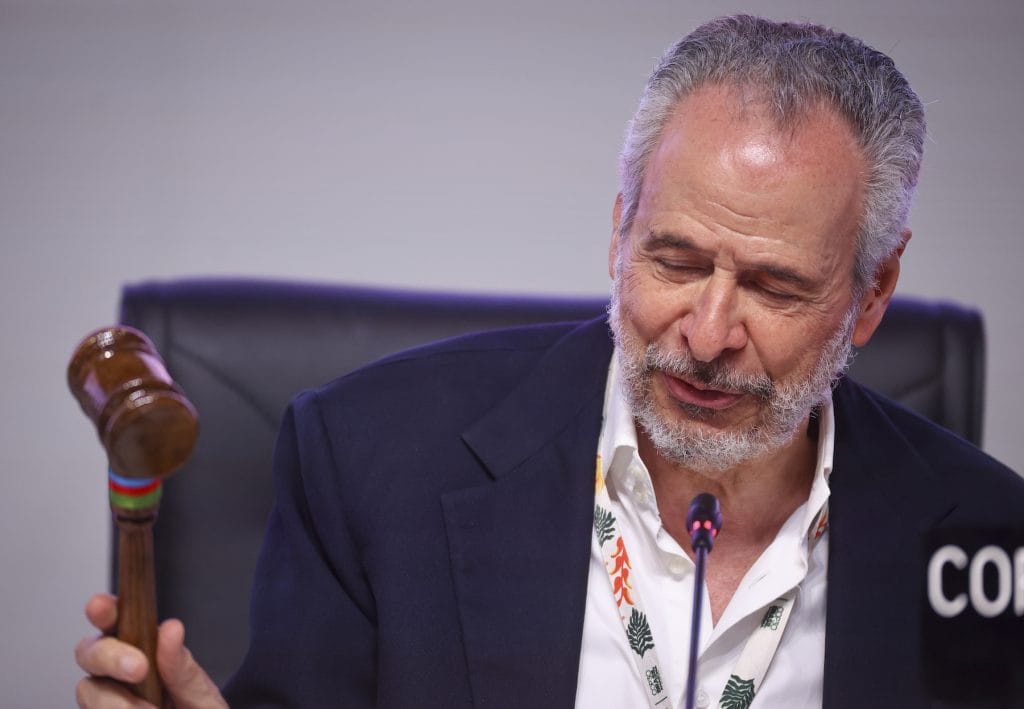
The climate conference is also finalizing a comprehensive set of 59 voluntary, non-prescriptive indicators to track progress under the Global Goal on Adaptation. These indicators span all sectors, including water, food, health, ecosystems, infrastructure, and livelihoods, and integrate cross-cutting issues such as finance, technology, and capacity-building.
Parties approved a just transition mechanism that puts people and equity at the center of the fight against climate change, the COP30 Presidency said, adding that the initiative aims to enhance international cooperation, technical assistance, capacity-building, and knowledge-sharing, and enable equitable, inclusive just transitions.
“Another adopted document, the Mutirão Decision, reaffirms our determination to enhance our collective ambition over time to move from negotiations to implementation now that the Paris Agreement and its cycles are fully in motion,” the COP30 Presidency said.
The following implementation mechanisms will help to accelerate this process:
The Global Implementation Accelerator: A collaborative and voluntary initiative launched under the leadership of the COP30 and COP31 Presidencies to support countries in implementing their NDCs and National Adaptation Plans (NAPs).
The Belém Mission to 1.5: An action-oriented platform under the COP29-COP31 troika to foster enhanced ambition and international cooperation across mitigation, adaptation, and investment.
“The Mutirão Decision defines the spirit of our COP: a global mobilization against climate change that celebrates the 10th anniversary of the Paris Agreement and paves the way for more ambition during this critical decade,” Corrêa do Lago said.
Both the Global Implementation Accelerator and the Belém Mission to 1.5 will work complementarily with the vision presented by the Climate High-Level Champions for the next five years of the Action Agenda. The Action Agenda structures the work of more than 480 initiatives that bring together 190 countries and tens of thousands of businesses, investors, subnational governments, and civil society organizations to support the implementation of the Global Stocktake (GST).
Corrêa do Lago emphasized that the work is just beginning, as Brazil will serve as COP President until November 2026. He reaffirmed Brazil’s commitment to advancing climate action by focusing on three key pillars of COP30: strengthening multilateralism and the climate regime, connecting climate initiatives to people’s daily lives, and accelerating the implementation of the Paris Agreement.
Tackling deforestation
In Belém near the mouth of the Amazon River, the launch of the Tropical Forests Forever Facility (TFFF) introduced a first-of-its-kind mechanism to deliver long-term, results-based payments to tropical forest countries for verified conservation of standing forests, the COP30 Presidency said, adding that the facility mobilized over $6.7 billion in its first phase, with endorsement from 63 countries, establishing a permanent capital base for forest protection.
Other nature-based announcements under the Action Agenda included expanded support for United for Our Forests, reinforcing regional and indigenous leadership in ecosystem protection, legal land tenure, and sustainable development. Large-scale agroecology and restoration initiatives were also launched to scale up biodiversity-positive climate solutions.
Ocean Task Force announced
On November 18, a Task Force on Oceans was unveiled during a high-level ministerial meeting at COP30. Led by Brazil and France, the initiative integrates oceans into a global mechanism that accelerates the adoption of marine solutions in national climate plans, the COP30 Presidency said. It also builds on the work of the Blue Nationally Determined Contributions (NDC) Challenge, which encourages countries to set ocean protection targets when updating their NDCs.
At the ministerial meeting, countries highlighted their intentions to transform the Blue NDC Challenge into an Implementation Task Force, reaffirming the importance of international collaboration and the strengthening of multilateralism. Additionally, the Action Agenda Blue Package was also disclosed, an initiative that represents an unprecedented advance with the structural integration of the ocean into the climate agenda.
On the occasion, it was also announced that 17 countries have already committed to incorporating the ocean into their updated climate plans. Besides Brazil and France, Australia, Fiji, Kenya, Mexico, Palau, the Republic of Seychelles, Chile, Madagascar, and the UK had already joined the initiative. During the event, six other countries—Belgium, Cambodia, Canada, Indonesia, Portugal, and Singapore—joined the Challenge, expanding the coalition.
After a compromise deal after the talks in Brazil, Turkey will host COP31 while Australia will lead the conference’s negotiations among governments.

